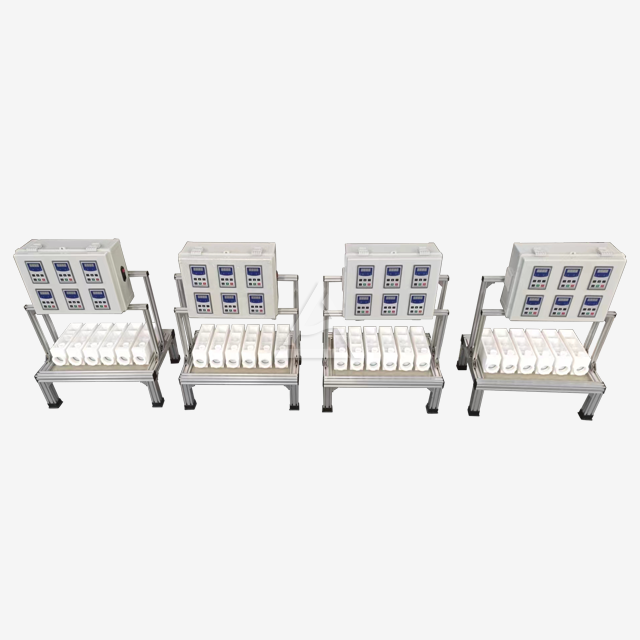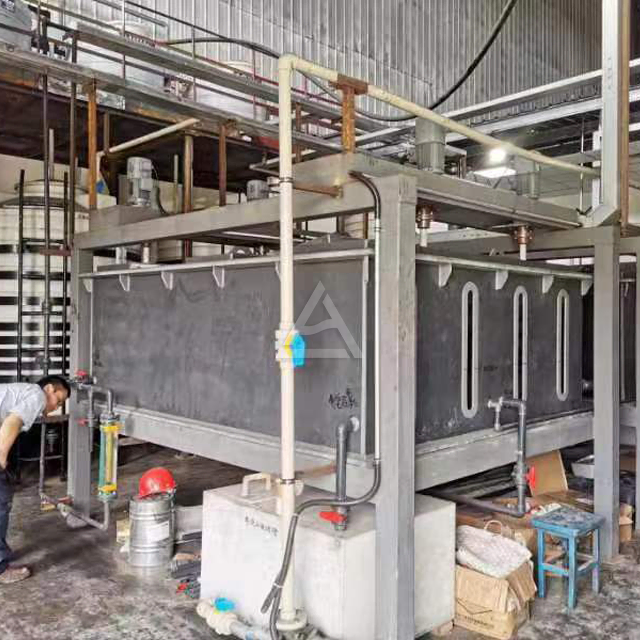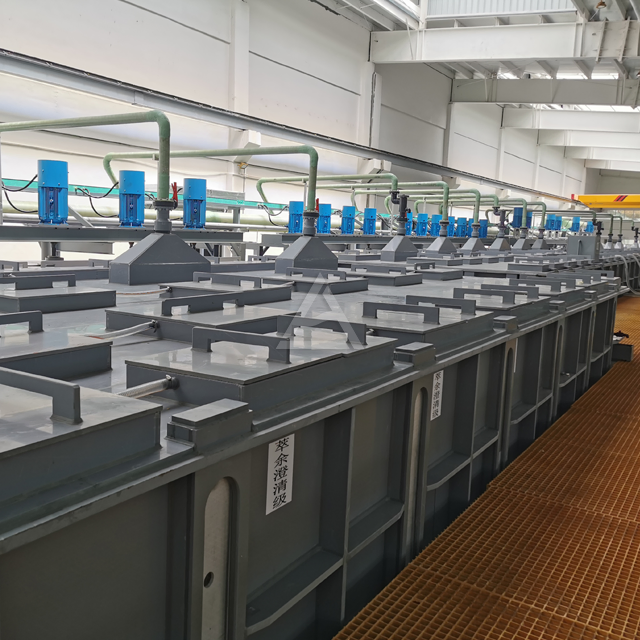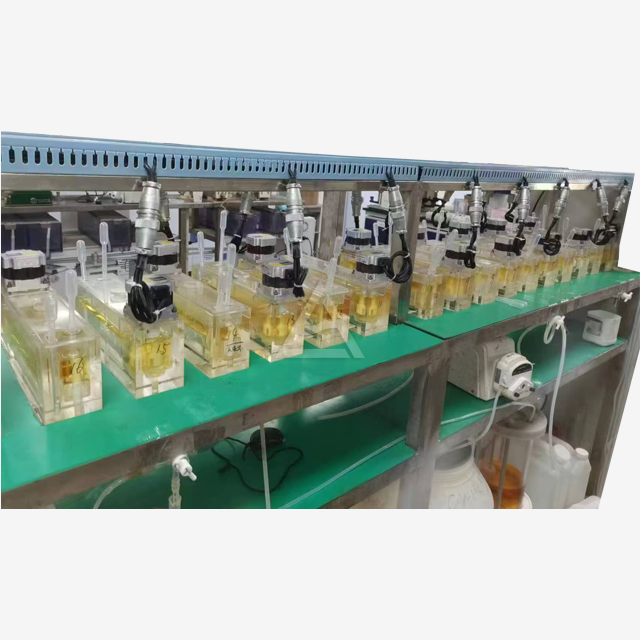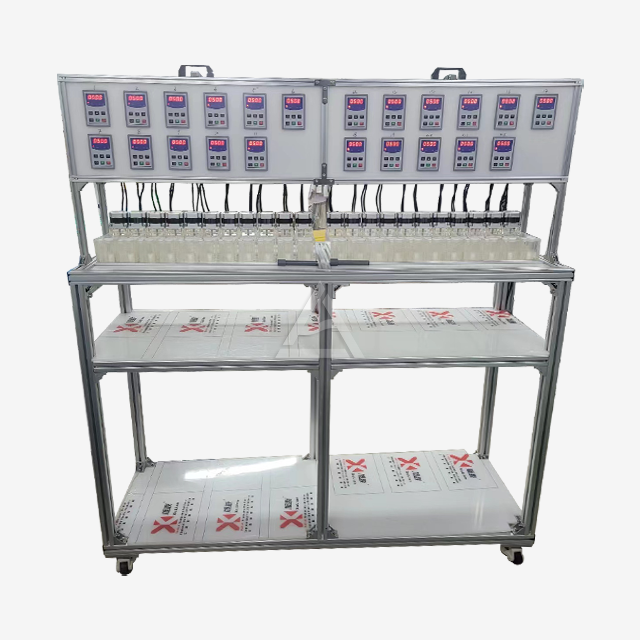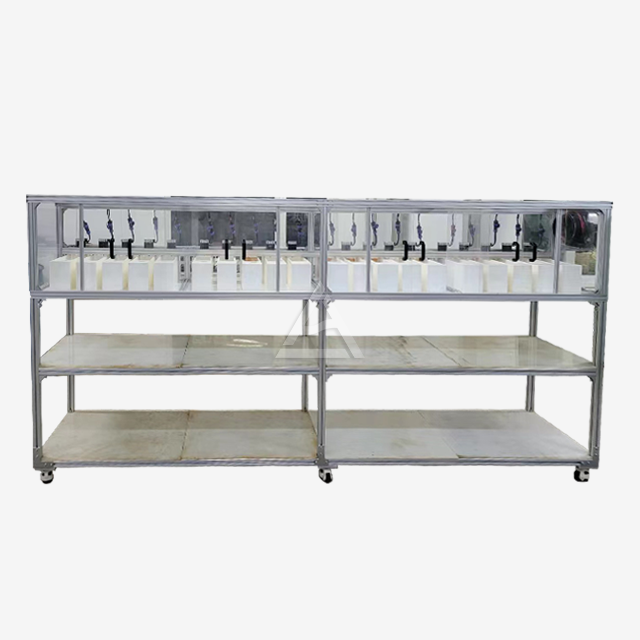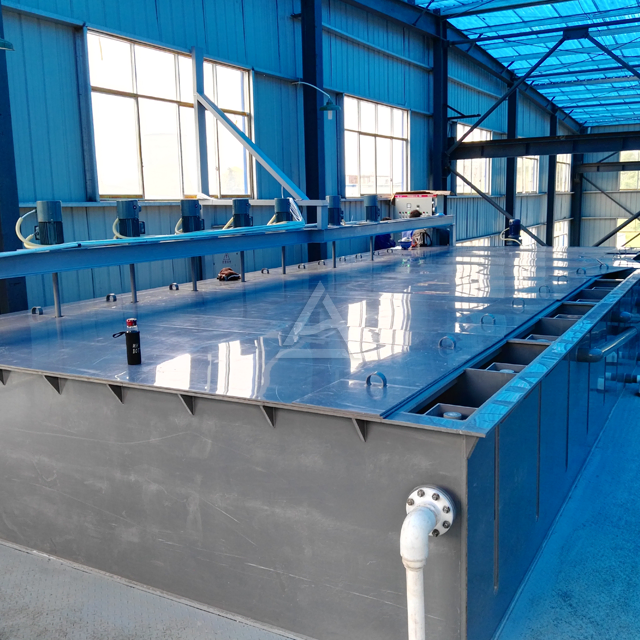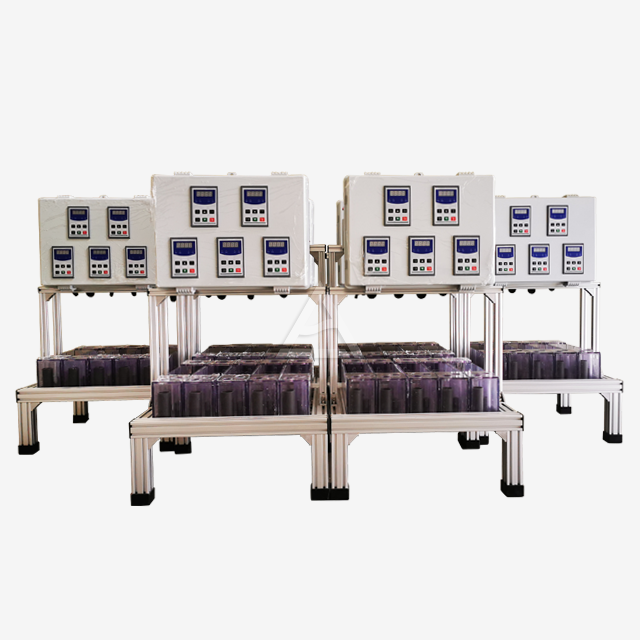Material Properties and Applications of PP and PPH Mixer Settlers
Chemical Resistance and Durability of PP Mixer Settlers
PP mixer settlers are renowned for their exceptional chemical resistance, making them a popular choice in various industrial applications. These devices can withstand a wide range of chemicals, including acids, bases, and organic solvents, without degrading or compromising their structural integrity. The inherent durability of polypropylene ensures that PP mixer settlers maintain their performance over extended periods, even in harsh operating conditions.
One of the key advantages of PP mixer settlers is their resistance to stress cracking, a common issue in many plastic materials when exposed to certain chemicals. This property allows PP mixer settlers to handle diverse extraction processes without the risk of premature failure. Additionally, PP's low moisture absorption rate contributes to its stability in aqueous environments, further enhancing its suitability for liquid-liquid extraction applications.
Thermal Stability and Operating Temperature Range of PPH Mixer Settlers
PPH mixer settlers, constructed from polypropylene homopolymer, offer enhanced thermal stability compared to standard PP. This improved heat resistance allows PPH mixer settlers to operate efficiently at higher temperatures, expanding their range of applications in chemical processing and hydrometallurgy.
The crystalline structure of PPH provides better mechanical properties at elevated temperatures, maintaining its strength and dimensional stability. This characteristic is particularly beneficial in extraction processes that require higher operating temperatures or involve exothermic reactions. PPH mixer settlers can typically handle temperatures up to 100°C (212°F) continuously, with short-term exposure to even higher temperatures possible without significant degradation.
Cost-Effectiveness and Versatility in Chemical Processing
Both PP and PPH mixer settlers offer excellent cost-effectiveness, making them attractive options for a wide range of industrial applications. The relatively low cost of polypropylene as a raw material, combined with its ease of processing, results in competitive pricing for these mixer settlers. This cost advantage does not come at the expense of performance, as both materials provide reliable and efficient extraction capabilities.
The versatility of PP and PPH mixer settlers is another significant benefit. These devices can be easily customized to meet specific process requirements, including various sizes, configurations, and features. This adaptability makes PP and PPH mixer settlers suitable for diverse applications, from small-scale laboratory use to large industrial operations in sectors such as mining, pharmaceuticals, and environmental remediation.

Comparing PVC and PTFE Mixer Settlers: Strengths and Limitations
PVC Mixer Settlers: Balancing Cost and Performance
PVC mixer settlers represent a cost-effective solution for many liquid-liquid extraction processes. The inherent properties of polyvinyl chloride make it resistant to a variety of chemicals, particularly acids and bases. This resistance, coupled with PVC's affordability, positions these mixer settlers as an attractive option for industries seeking balance between performance and budget constraints.
However, PVC mixer settlers do have limitations in terms of temperature resistance and compatibility with certain organic solvents. They typically operate best at temperatures below 60°C (140°F), which may restrict their use in high-temperature applications. Despite these constraints, PVC mixer settlers find extensive use in water treatment, electroplating, and certain hydrometallurgical processes where their chemical resistance and cost-effectiveness are advantageous.
PTFE Mixer Settlers: Superior Chemical Inertness and Non-Stick Properties
PTFE mixer settlers stand out for their exceptional chemical inertness and non-stick properties. Polytetrafluoroethylene, commonly known as Teflon, offers unparalleled resistance to almost all chemicals, making PTFE mixer settlers ideal for handling highly corrosive or reactive substances. This extreme chemical resistance allows for the processing of materials that would quickly degrade other types of mixer settlers.
The non-stick nature of PTFE significantly reduces the risk of fouling and scaling, which can be critical in certain extraction processes. This property not only enhances the efficiency of the extraction but also simplifies cleaning and maintenance procedures. PTFE mixer settlers can operate across a wide temperature range, from cryogenic temperatures up to 260°C (500°F), providing flexibility for various process conditions.
Application-Specific Considerations: When to Choose PVC or PTFE
Selecting between PVC and PTFE mixer settlers depends on the specific requirements of the extraction process. PVC is often the preferred choice for applications involving mild to moderately corrosive chemicals, where cost is a significant factor, and operating temperatures remain relatively low. Industries such as wastewater treatment and basic metal recovery often find PVC mixer settlers to be sufficient for their needs.
PTFE mixer settlers, while more expensive, are the go-to option for highly demanding applications. They excel in scenarios involving extremely corrosive chemicals, high purity requirements, or where contamination must be strictly avoided. Industries such as semiconductor manufacturing, pharmaceutical production, and advanced materials processing often rely on PTFE mixer settlers to ensure product quality and process integrity.

Optimizing Extraction Processes: Selecting the Right Mixer Settler Material
Assessing Process Parameters and Material Compatibility
Choosing the optimal mixer settler material begins with a thorough assessment of the extraction process parameters. Key factors to consider include the nature of the chemicals involved, operating temperatures, pH levels, and the presence of any abrasive particles. Each material - PP, PPH, PVC, and PTFE - has its own compatibility profile that must be matched against these process conditions.
For instance, in processes involving organic solvents, PP mixer settler, PP or PPH mixer settlers might be preferred due to their broad chemical resistance. However, if the extraction involves highly oxidizing acids, PTFE could be the safer choice. It's crucial to consult material compatibility charts and conduct pilot tests when necessary to ensure the selected mixer settler material can withstand the specific chemical environment without degradation or contamination.
Balancing Performance Requirements with Economic Considerations
While material performance is paramount, economic factors play a significant role in the selection process. PP and PPH mixer settlers often provide an excellent balance between performance and cost, making them suitable for a wide range of applications. PVC offers a more budget-friendly option for less demanding processes, while PTFE represents the premium choice for critical applications where chemical inertness is non-negotiable.
When evaluating the economic aspects, it's important to consider not just the initial investment but also long-term operational costs. Factors such as expected lifespan, maintenance requirements, and potential downtime due to material failure should all be factored into the decision-making process. In some cases, the higher upfront cost of a more resistant material like PTFE can be justified by its longer service life and reduced maintenance needs.
Future-Proofing Extraction Systems: Adaptability and Scalability
As industrial processes evolve and new challenges emerge, the adaptability of mixer settler materials becomes increasingly important. Selecting a material that offers flexibility for future process modifications or expansions can provide long-term benefits. PP and PPH mixer settlers, with their versatility and ease of customization, often offer good adaptability for changing process requirements.
Scalability is another crucial consideration, especially for growing operations. The chosen material should be able to accommodate increased production volumes without compromising performance. PTFE mixer settlers, while initially more expensive, can offer advantages in terms of scalability due to their superior resistance properties, potentially supporting a wider range of process conditions as operations expand or diversify.

Conclusion
Understanding the differences between PP, PPH, PVC, and PTFE mixer settlers is crucial for optimizing extraction processes across various industries. Each material offers unique advantages, from the chemical resistance and cost-effectiveness of PP and PPH to the affordability of PVC and the superior inertness of PTFE. By carefully considering process requirements, economic factors, and future scalability, engineers and process designers can select the most appropriate mixer settler material to ensure efficient, reliable, and sustainable extraction operations.
Contact Us
For expert guidance on selecting the ideal mixer settler for your specific extraction needs, reach out to Cuiyan Technology. Our team of specialists can help you navigate the complexities of material selection, ensuring optimal performance and cost-effectiveness for your processes. Contact us today at wangzhijun@cuiyan-tec.com to explore how our advanced extraction solutions can benefit your operations.




